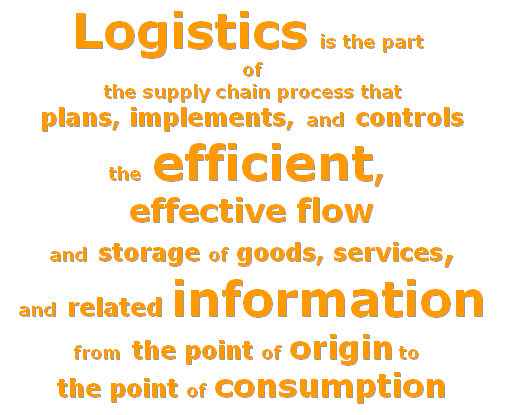
L ogistics has been derived from a Greek word ¡§logistikos¡¨ which means ¡§science of calculation¡¨ , and ¡§competent in calculation¡¨ . On the other hand, logistics as a military term corresponds to the activities required to provide battle units with tactical services and supplies. In this perspective, logistics has been recognized as the art of ¡§conveniently mobilizing an army together with its supplies and munitions¡¨. While logistics applications have found place only in military area until thei ndustrial revolution, globalization and emerging technology made logistics an influential concept beyond military applications.
Today, modern business world has transformed into a new arena: the battlefield is replaced by international competition; goods, technology and assets are primary substitutes for supplies and munitions. The significance of strategies and activities for success , i.e. logistics, has grown rapidly. In 21st century, l ogistics has carved out its own niche in the business agenda as the ¡§capability to mobilize the whole organization and its resources in harmony to achieve corporate objectives¡¨.
In this scope, a wide range of activities like purchasing, transportation, (land, air, sea), customsclearance insurance, handling, warehousing, track and trace, demand forecast, inventory management, information systems, distribution and delivery , direct consignment returns, supply to production lines , value added activities (bar-coding, labeling, packaging, manipulation and kitting etc.) route planning and vehicle optimisation have all become synonymous with the word ¡§logistics¡¨.
|
|
|
||||||||||||||||||